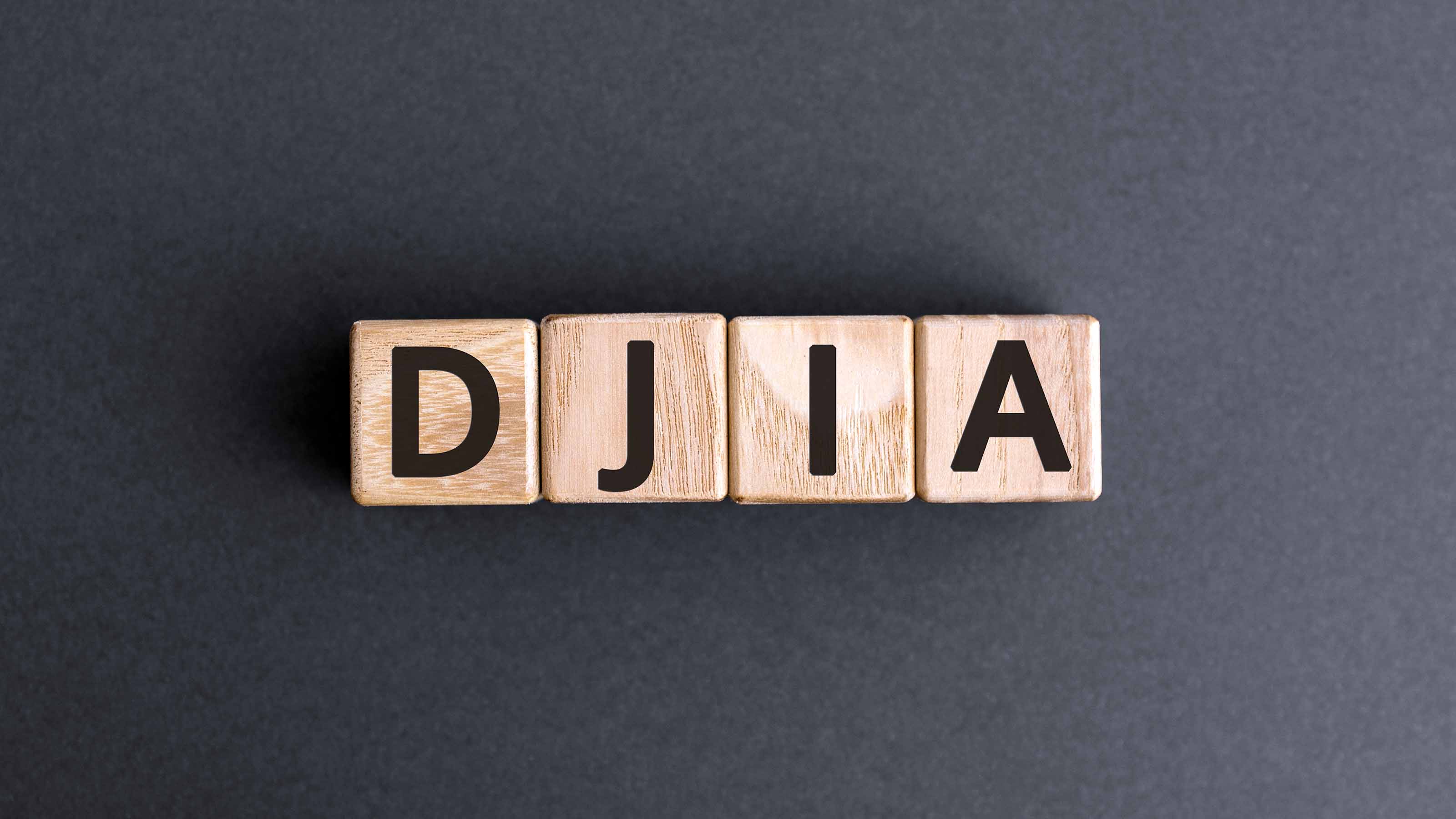What Is the Dow Jones?
The Dow Jones index is made up of 30 large-cap stocks and is used to measure the performance of the equity market.


Profit and prosper with the best of Kiplinger's advice on investing, taxes, retirement, personal finance and much more. Delivered daily. Enter your email in the box and click Sign Me Up.
You are now subscribed
Your newsletter sign-up was successful
Want to add more newsletters?

Delivered daily
Kiplinger Today
Profit and prosper with the best of Kiplinger's advice on investing, taxes, retirement, personal finance and much more delivered daily. Smart money moves start here.

Sent five days a week
Kiplinger A Step Ahead
Get practical help to make better financial decisions in your everyday life, from spending to savings on top deals.

Delivered daily
Kiplinger Closing Bell
Get today's biggest financial and investing headlines delivered to your inbox every day the U.S. stock market is open.

Sent twice a week
Kiplinger Adviser Intel
Financial pros across the country share best practices and fresh tactics to preserve and grow your wealth.

Delivered weekly
Kiplinger Tax Tips
Trim your federal and state tax bills with practical tax-planning and tax-cutting strategies.

Sent twice a week
Kiplinger Retirement Tips
Your twice-a-week guide to planning and enjoying a financially secure and richly rewarding retirement

Sent bimonthly.
Kiplinger Adviser Angle
Insights for advisers, wealth managers and other financial professionals.

Sent twice a week
Kiplinger Investing Weekly
Your twice-a-week roundup of promising stocks, funds, companies and industries you should consider, ones you should avoid, and why.

Sent weekly for six weeks
Kiplinger Invest for Retirement
Your step-by-step six-part series on how to invest for retirement, from devising a successful strategy to exactly which investments to choose.
There are several ways to measure the performance of the stock market, including using the Dow Jones Industrial Average. But what is the Dow Jones?
To be exact, the Dow Jones, which is also known as the Dow or the DJIA, is a price-weighted index of 30 blue chip stocks on the New York Stock Exchange (NYSE) and the Nasdaq. These companies are well-established with strong fundamentals and are typically considered to be lower risk. The Dow measures the price action of these stocks, which helps show investors the direction of the equities market.
The Dow Jones Industrial Average has been around since 1896, which makes it the longest benchmark of the U.S. stock market. There were originally 12 companies that made up the index – all industrial stocks – including GE Aerospace (GE), formerly known as General Electric, with the Dow getting up to 30 members by 1928.
From just $107.88 $24.99 for Kiplinger Personal Finance
Become a smarter, better informed investor. Subscribe from just $107.88 $24.99, plus get up to 4 Special Issues

Sign up for Kiplinger’s Free Newsletters
Profit and prosper with the best of expert advice on investing, taxes, retirement, personal finance and more - straight to your e-mail.
Profit and prosper with the best of expert advice - straight to your e-mail.
The DJIA first began trading at 40.9 points, and didn't surpass the 1,000 level until 1972. Its all-time high of 40,842 was hit on July 31, 2024.
How does the Dow work?
The Dow Jones has a unique aspect that makes it stand out from many of the other indexes that track the U.S. stock market. Specifically, the DJIA is price-weighted, rather than capitalization-weighted.
What does this mean?
While indexes such as the S&P 500 allow for higher weightings based on a component's market capitalization, or market value, the Dow gives greater weighting to stocks with higher share prices. And those stocks have a greater impact on the movement of the Dow Jones Industrial Average.
For example, the current share price for healthcare stock UnitedHealth Group (UNH) is around $580, while semiconductor stock Intel (INTC) trades closer to $20. This means that UNH has an outsized weighting (9.5%) in the Dow vs INTC (0.3%), and its price movements have a greater sway on the Dow index performance.
So, say for instance UnitedHealth rises by $10 and INTC moves up by just $5, UNH stock will have a two times greater influence on the index performance. However, the percentage change for UNH stock is only about 2% compared to a 25% move for Intel.
Meanwhile, Apple (AAPL), with its $3.4 trillion market capitalization, is six times the market cap of UnitedHealth, but its weighting in the Dow is less than half of UNH. But in the S&P 500, AAPL's weighting is 7% vs 1.2% for UNH and 0.2% for INTC given it is a market-cap weighted index.
Some have criticized the Dow for this type of disparity in market caps. Nevertheless, over time, higher-priced stocks in the Dow have tended to correlate with higher market capitalizations.
Why is the Dow important?
The actual calculation of the DJIA performance is more complex than this. As a result, this has helped the Dow index gain a dedicated following as an authentic representation of the market’s performance.
Still, many institutional investors and index investors prefer to mimic market-cap weighted indexes like the S&P 500 rather than the Dow. But the DJIA remains a key indicator of the health of not only the stock market, but also the economy, as the companies included in the index tend to be industry leaders with both positive and stable earnings.
Can I invest in the Dow Jones?
While investors cannot trade the Dow directly because it is an index, meaning it strictly measures the average price of the stocks it tracks, there are ways to gain exposure to it.
For one, investors can buy shares in the individual Dow stocks.
Investors can also easily purchase exchange-traded funds (ETFs) that track the index. Some of the best ETFs to do this include the SPDR Dow Jones Industrial Average ETF Trust (DIA) and the iShares Dow Jones US (IYY).
Related content
- Stock Picks That Billionaires Love
- Best Dividend Stocks to Buy for Dependable Dividend Growth
- Dollar-Cost Averaging Into Stocks: How Does DCA Investing Work
Profit and prosper with the best of Kiplinger's advice on investing, taxes, retirement, personal finance and much more. Delivered daily. Enter your email in the box and click Sign Me Up.

Mark R. Hake, CFA, is a Chartered Financial Analyst and entrepreneur. He has been writing on stocks for over six years and has also owned his own investment management and research firms focused on U.S. and international value stocks, for over 10 years. In addition, he worked on the buy side for investment firms, hedge funds, and investment divisions of insurance companies for the past 36 years. Lately, he is also working as Chief Strategy Officer for a tech start-up company, Foldstar Inc, based in Princeton, New Jersey.
-
 Dow Leads in Mixed Session on Amgen Earnings: Stock Market Today
Dow Leads in Mixed Session on Amgen Earnings: Stock Market TodayThe rest of Wall Street struggled as Advanced Micro Devices earnings caused a chip-stock sell-off.
-
 How to Watch the 2026 Winter Olympics Without Overpaying
How to Watch the 2026 Winter Olympics Without OverpayingHere’s how to stream the 2026 Winter Olympics live, including low-cost viewing options, Peacock access and ways to catch your favorite athletes and events from anywhere.
-
 Here’s How to Stream the Super Bowl for Less
Here’s How to Stream the Super Bowl for LessWe'll show you the least expensive ways to stream football's biggest event.
-
 Dow Leads in Mixed Session on Amgen Earnings: Stock Market Today
Dow Leads in Mixed Session on Amgen Earnings: Stock Market TodayThe rest of Wall Street struggled as Advanced Micro Devices earnings caused a chip-stock sell-off.
-
 How to Add a Pet Trust to Your Estate Plan: Don't Leave Your Best Friend to Chance
How to Add a Pet Trust to Your Estate Plan: Don't Leave Your Best Friend to ChanceAdding a pet trust to your estate plan can ensure your pets are properly looked after when you're no longer able to care for them. This is how to go about it.
-
 Want to Avoid Leaving Chaos in Your Wake? Don't Leave Behind an Outdated Estate Plan
Want to Avoid Leaving Chaos in Your Wake? Don't Leave Behind an Outdated Estate PlanAn outdated or incomplete estate plan could cause confusion for those handling your affairs at a difficult time. This guide highlights what to update and when.
-
 I'm a Financial Adviser: This Is Why I Became an Advocate for Fee-Only Financial Advice
I'm a Financial Adviser: This Is Why I Became an Advocate for Fee-Only Financial AdviceCan financial advisers who earn commissions on product sales give clients the best advice? For one professional, changing track was the clear choice.
-
 Nasdaq Slides 1.4% on Big Tech Questions: Stock Market Today
Nasdaq Slides 1.4% on Big Tech Questions: Stock Market TodayPalantir Technologies proves at least one publicly traded company can spend a lot of money on AI and make a lot of money on AI.
-
 I Met With 100-Plus Advisers to Develop This Road Map for Adopting AI
I Met With 100-Plus Advisers to Develop This Road Map for Adopting AIFor financial advisers eager to embrace AI but unsure where to start, this road map will help you integrate the right tools and safeguards into your work.
-
 The Referral Revolution: How to Grow Your Business With Trust
The Referral Revolution: How to Grow Your Business With TrustYou can attract ideal clients by focusing on value and leveraging your current relationships to create a referral-based practice.
-
 This Is How You Can Land a Job You'll Love
This Is How You Can Land a Job You'll Love"Work How You Are Wired" leads job seekers on a journey of self-discovery that could help them snag the job of their dreams.